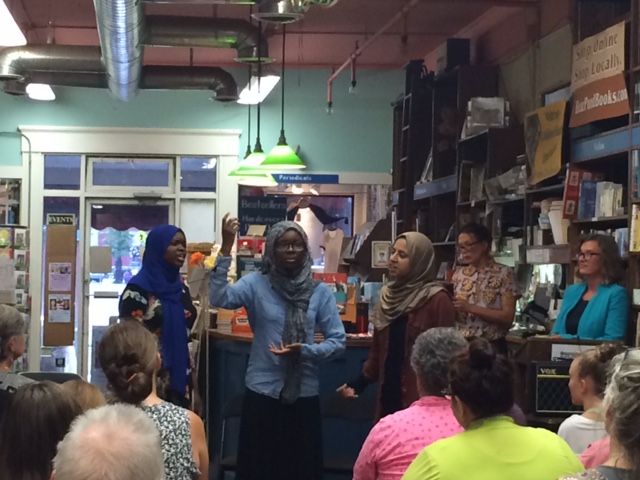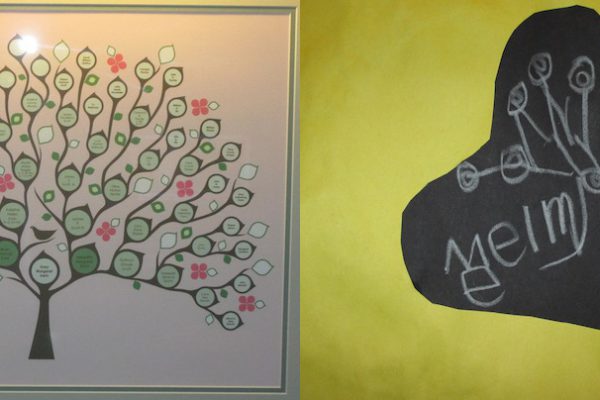
When my fourth grade daughter started thinking about her informational writing piece, a culminating writing project of sorts, she initially focused on topics about which she was knowledgeable – myths (thank you Rick Riordan), dogs, skiing. I asked her what she wanted to learn more about, and her answer was the Taliban. I put that back on her teacher, knowing that, on many levels, researching the Taliban could be a difficult effort for a ten year old.

Her interest stems from an almost-obsession with Malala Yousafzai that was ignited by multiple readings of the book Rad Women Worldwide. The short stories about changemaking women with simple block print style illustrations really stuck with her. She would tell her friends in the car about the most recent story she read, but Malala’s story resurfaced. We watched the documentary, read her book, and my daughter even read part of Malala’s Nobel Peace Prize speech at the talent show in third grade.
I’m sure there are many reasons she was so taken with Malala, but one definitely is that she is young. The creators of Rad Women got that message too, and just published Rad Girls Can. We went to their book signing at Bear Pond Books this week – thank you to CLiF’s Board of Advisors member Jane Knight for arranging a fabulous event.
What struck me was that this event and this book series appealed to both adults and girls. The author Kate Schatz explained how the first book Rad American
 Women A-Z arised from her need to provide her daughter with a book they both could read. They had a Montpelier High School activist speak, Selene Coburn, a Burlington-area state representative, and Muslim Girls Making Change, whose image appears on the front cover of the book. The message that there is always something you can do to make change, big or small, is universal – tweet, stay informed, protest, write poems, write letters, talk to others. As I sat there listening as a mom, an educator, a citizen, I kept thinking that the local bookstore was such a perfect place to start a discussion about activism in general with a multigenerational audience and that a smart children’s book is such a perfect entry point for that discussion.
Women A-Z arised from her need to provide her daughter with a book they both could read. They had a Montpelier High School activist speak, Selene Coburn, a Burlington-area state representative, and Muslim Girls Making Change, whose image appears on the front cover of the book. The message that there is always something you can do to make change, big or small, is universal – tweet, stay informed, protest, write poems, write letters, talk to others. As I sat there listening as a mom, an educator, a citizen, I kept thinking that the local bookstore was such a perfect place to start a discussion about activism in general with a multigenerational audience and that a smart children’s book is such a perfect entry point for that discussion.
Talking with my daughter after the event, we decided the main message was how do you find your voice and how do you make it heard. Muslim Girls Making Change talked about how poems have helped them to not only tell their own stories, but also how to give voice to those who can not yet tell their stories; they performed a moving poem about the Syrian refugee crisis. Poetry and storytelling is an outlet, a way to reclaim their stories and build community, a connection point, and a conversation starter.

CLiF works hard to help schools, libraries, and out of school time providers to find the space and time for kids to explore stories and storytelling as ways to connect, to build confidence, and to try to make sense of a crazy world. Kate Schatz talked about what it meant to be “rad” – not only does it refer to being cool, but also to being radical, as defined by doing something differently and making a difference – a message for everyone!
Photo: Muslim Girls Making Change, Kate Schatz, Selene Colburn


